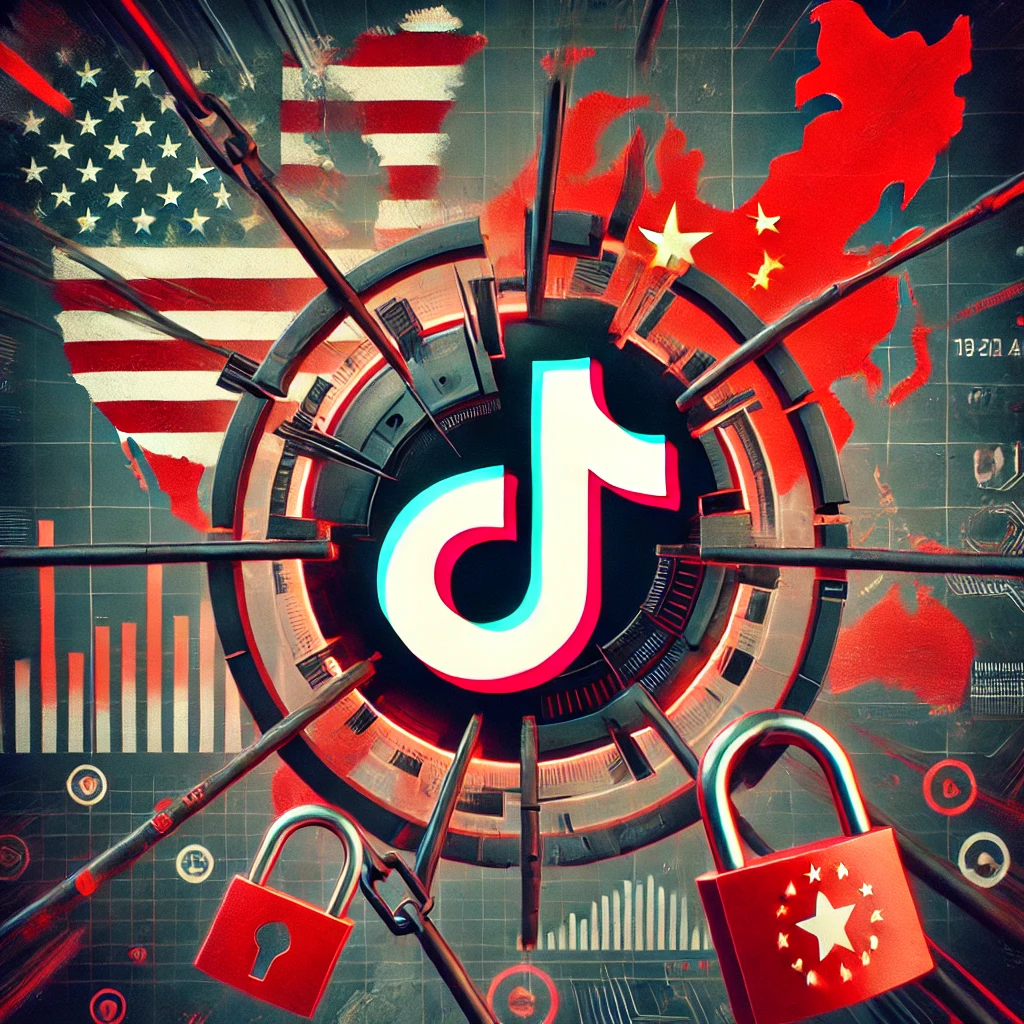Washington, D.C. — On January 17, 2025, the U.S. Supreme Court upheld the Protecting Americans from Foreign Adversary Controlled Applications Act (PAFACA), clearing the way for an imminent ban on TikTok unless its Chinese parent company, ByteDance, divests its U.S. operations. This decision intensifies the ongoing debate about national security, data privacy, and the future of the global tech landscape.
Legal and Political Context
The PAFACA legislation, enacted in 2024, grants the U.S. government sweeping authority to restrict or ban applications linked to foreign adversaries if they are deemed to pose national security threats. TikTok, with its 170 million American users, has been under scrutiny due to concerns that ByteDance could provide user data to the Chinese government—a claim the company has consistently denied.
The Supreme Court’s ruling addressed constitutional challenges, including claims that PAFACA infringes on free speech rights. In a 9-0 decision, the justices concluded that while the law impacts expression, it falls within the government’s purview to address national security risks.
Chief Justice John Roberts wrote, “The potential for foreign influence and misuse of sensitive personal data justifies a narrowly tailored response to protect the nation’s security interests.”
The Administration’s Position
President Joe Biden, who signed PAFACA into law, has faced criticism from both sides of the aisle. While some Democrats question the law’s scope and implications for digital freedom, Republicans have pushed for immediate enforcement. However, Biden has opted to leave enforcement decisions to the incoming administration of President-elect Donald Trump.
Trump has signaled support for the law but indicated a willingness to provide TikTok with a 90-day extension to facilitate a potential sale. “We’re looking at solutions that protect Americans’ data while ensuring the platform can continue its operations under U.S. ownership,” Trump said during a press briefing.
ByteDance’s Search for Buyers
ByteDance, under immense pressure, is actively negotiating with potential buyers to avoid a ban. The process is complicated by the app’s algorithm, which is subject to Chinese export laws that restrict the transfer of key technological assets. Analysts estimate TikTok’s U.S. operations are worth $40-$50 billion, but the algorithm’s uncertain availability could impact the valuation.
Rumored bidders include major tech firms and private equity groups, while smaller players like Perplexity AI have expressed interest in partnerships. Despite the high stakes, industry insiders caution that any deal would face rigorous regulatory scrutiny.
Impact on Users and Creators
The impending ban has left TikTok users and creators in limbo. The platform’s popularity, particularly among younger demographics, has made it a cultural phenomenon. For influencers and businesses that rely on TikTok for revenue, the uncertainty is disruptive.
Jessica Ramirez, a content creator with over 2 million followers, expressed frustration. “I’ve built my brand on TikTok. Losing this platform would mean starting over on another app, and that’s not easy when your audience might not follow you,” she said.
Alternatives like Instagram Reels, YouTube Shorts, and emerging platforms such as Clapper have seen a surge in interest, but none have yet matched TikTok’s unique appeal.
Broader Implications
The TikTok controversy underscores broader tensions between the U.S. and China, particularly in technology and trade. Critics argue that banning TikTok represents a shift in America’s approach to digital platforms, with implications for internet freedom.
“This is a pivotal moment,” said Sarah Lopez, a policy analyst at the Brookings Institution. “The U.S. is signaling that digital sovereignty takes precedence over the open internet, which could encourage other nations to follow suit.”
TikTok’s fate also highlights challenges for global tech companies navigating geopolitical rivalries. While proponents of the ban emphasize its necessity to safeguard sensitive data, others warn of the risks of overreach.
What’s Next?
With the ban set to take effect on January 19, TikTok’s future in the U.S. hangs in the balance. ByteDance’s ability to secure a sale in the coming months could determine whether the app survives in its largest international market.
As the deadline approaches, millions of users and creators await clarity, navigating the uncertainty of a digital era increasingly defined by geopolitical divides.
Stay tuned to NEOhio.News for further updates on this developing story.












